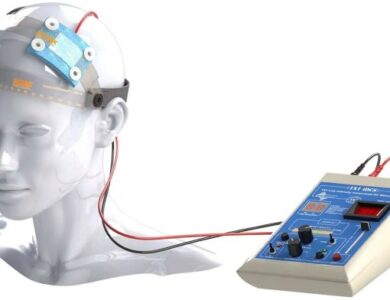Say Goodbye to Toothaches: Expert Tips for Pain Relief and Prevention

Dealing with a toothache can be a miserable experience. The sharp, throbbing pain can make it difficult to eat, sleep, and concentrate on daily activities. Toothaches can have various causes, ranging from minor issues to more serious dental problems. In this article, we will explore the top 10 causes of toothaches and discuss how to treat them effectively.
1. Tooth Decay
Tooth decay, also known as cavities or dental caries, is one of the most common causes of toothaches. When bacteria in the mouth produce acids that erode the tooth enamel, it leads to the formation of cavities. The decay can reach the inner layers of the tooth, causing sensitivity and pain. Treatment for tooth decay includes dental fillings, root canals, or in severe cases, tooth extraction.
2. Gum Disease
Gum disease, also called periodontal disease, affects the tissues surrounding the teeth. It occurs when plaque buildup leads to inflammation and infection. Gum disease can cause toothaches, as well as symptoms like bleeding gums, bad breath, and receding gums. Treatment for gum disease may involve deep cleaning, antibiotics, or in advanced cases, gum surgery.
3. Tooth Sensitivity
Tooth sensitivity is characterized by a sharp pain or discomfort when consuming hot or cold foods and beverages. It occurs when the tooth enamel wears down, exposing the underlying dentin and nerve endings. Over-the-counter desensitizing toothpaste or fluoride treatments can help alleviate tooth sensitivity. In some cases, dental procedures like dental bonding or a root canal may be necessary.
4. Tooth Fracture
A tooth fracture can result from trauma, biting down on hard objects, or untreated cavities. It can cause severe toothache, especially when the fracture extends into the tooth’s pulp. Treatment for a tooth fracture depends on the severity and location of the fracture. It may involve dental bonding, a dental crown, or in severe cases, tooth extraction.
5. Abscessed Tooth
An abscessed tooth is a severe infection that occurs when bacteria invade the tooth’s pulp. It causes intense pain, swelling, and a bad taste in the mouth. An abscessed tooth requires immediate dental attention. Treatment may involve draining the abscess, root canal therapy, or tooth extraction.
6. Impacted Wisdom Teeth
Impacted wisdom teeth occur when there is not enough space in the mouth for the wisdom teeth to fully emerge or develop properly. It can cause toothache, jaw pain, and swelling. Treatment for impacted wisdom teeth often involves extraction, especially if they are causing pain or affecting the alignment of other teeth.
7. Dental Trauma
Dental trauma refers to injuries to the teeth and surrounding tissues due to accidents or sports-related incidents. It can cause toothaches, loose teeth, or even tooth loss. Treatment for dental trauma depends on the extent of the injury and may include dental bonding, root canal therapy, or tooth extraction.
8. Bruxism
Bruxism, also known as teeth grinding or clenching, can lead to toothaches. The excessive force exerted on the teeth can cause them to become sensitive and painful. Treatment for bruxism often involves wearing a custom-made mouthguard to protect the teeth during sleep. In some cases, stress management techniques or dental procedures may be recommended.
9. Sinus Infections
Sinus infections can cause referred pain to the upper teeth, resulting in toothache-like symptoms. The pressure from the infected sinuses can make the teeth and gums feel sensitive and painful. Treating the underlying sinus infection with antibiotics or other medications can help alleviate the toothache.
10. Temporomandibular Joint (TMJ) Disorders
TMJ disorders affect the jaw joint and can cause toothache-like pain. The pain may be accompanied by jaw clicking, difficulty opening or closing the mouth, and headaches. Treatment for TMJ disorders may include lifestyle changes, physical therapy, medication, or in severe cases, surgery.
Toothaches can be caused by various factors, ranging from tooth decay and gum disease to dental trauma and TMJ disorders. If you experience a toothache, it is important to seek dental care to determine the underlying cause and receive appropriate treatment. Maintaining good oral hygiene, regular dental check-ups, and addressing dental issues promptly can help prevent toothaches and promote overall oral health.




